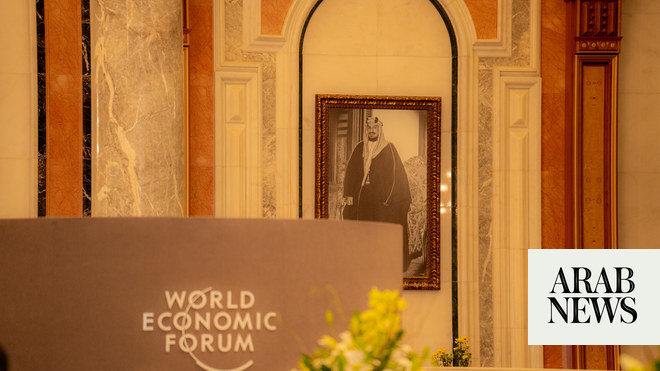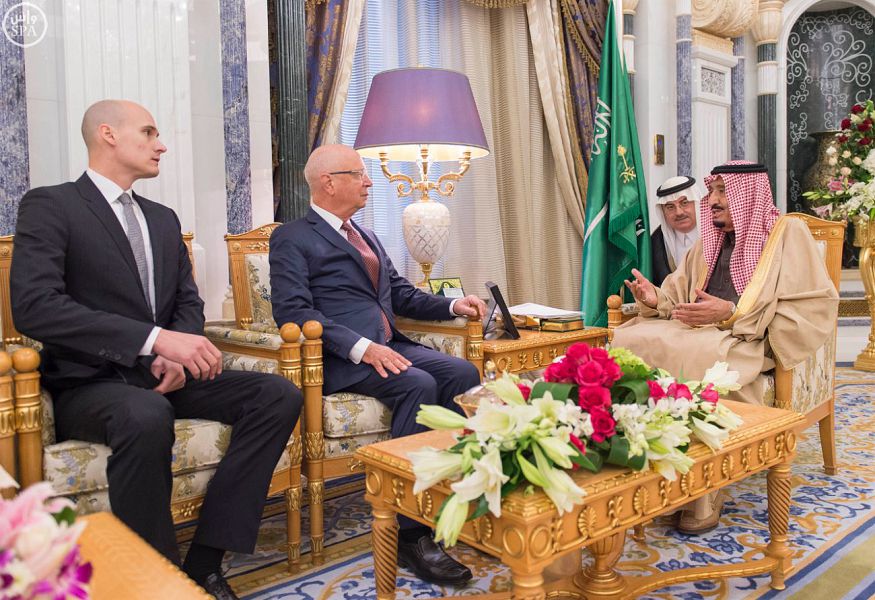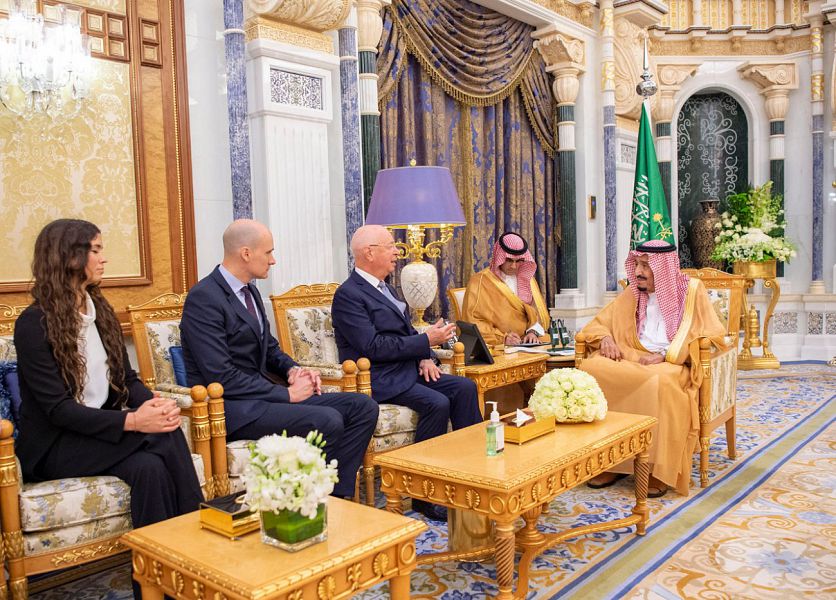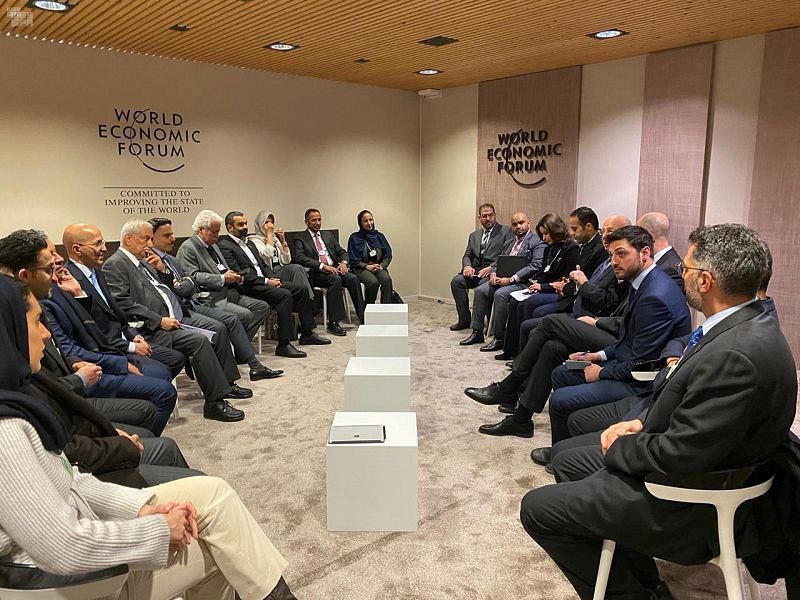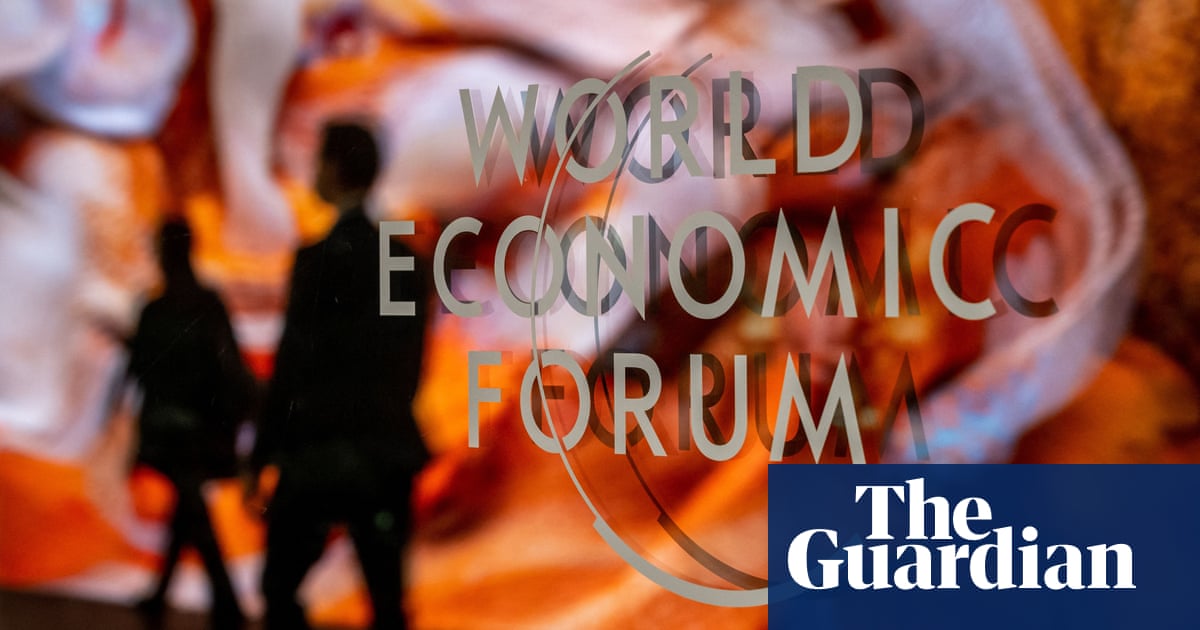
Growing concern that heightened geopolitical tension could damage an already shaky global economy has dominated the start of the annual gathering of the world’s business and political elite in Davos, Switzerland.
Three potential flash points – Ukraine, the Middle East and Taiwan – threatened to overshadow the meeting of the World Economic Forum (WEF) aimed at rebuilding trust after the series of setbacks suffered in the past four years, including war, the Covid-19 pandemic and the cost of living crisis.
Meanwhile, a study of global business leaders to mark the start of the gathering in the Swiss mountain resort showed UK chief executives embracing generative artificial intelligence more rapidly than their peers in other countries.
France’s Emmanuel Macron, Ukraine’s Volodymyr Zelenskiy, and the European Commission president, Ursula von der Leyen, are all scheduled to address the WEF this week, as is Argentina’s new president Javier Milei.
With Middle East tensions rising, the US is sending its secretary of state, Antony Blinken, and the its national security adviser, Jake Sullivan, to Davos. Israel’s president, Isaac Herzog, is also attending, as are the prime ministers of Iraq, Mohammed Shia al-Sudani, and Jordan, Bisher al-Khasawneh, and Iran’s minister of foreign affairs, Hossein Amir-Abdollahian.
The UK chancellor, Jeremy Hunt, and his Labour shadow, Rachel Reeves, are both speaking at this year’s event. Hunt’s predecessor, Kwasi Kwarteng, is also attending.
Artificial intelligence will dominate Davos, with OpenAI’s Sam Altman due to appear on a panel. AI is seen by its proponents as a possible way of boosting growth, but the WEF said in last week’s global risks report that it could be misused by hostile states and other malign forces.
Interviewed by CNBC, Kristalina Georgieva, the managing director of the International Monetary Fund, warned that without measures to shape its use AI would lead to greater inequality. She said: “It’s arriving – do not close your eyes or put your head in the sand. AI requires preparation.”
In its annual survey of chief executives, the accountancy firm PwC said almost half (42%) of those running UK companies had implemented the new technology in the past year, compared with 32% in other countries.
The survey of 4,702 CEOs in 105 countries found the UK was one of the frontrunners in adopting the generative AI that runs chatbots such as ChatGPT and image generators such as Midjourney. Only 9% of German chief executives and 20% of French CEOs had adopted GenAI, along with 38% of US CEOs and 25% of China’s CEOs. Only Norway, (53%), Japan (50%) and Finland (49%) had been faster.
Kevin Ellis, a senior partner at PwC UK, said: “After an uphill trek against economic headwinds, UK chief execs are seeking gamechanging opportunities. GenAI presents a ‘move or lose’ moment – implemented with care, it offers huge benefits for efficiency, competitiveness and ultimately profitability.
“The UK’s service-based economy makes it ideally placed for the GenAI revolution – building tech is only half the battle, ensuring people and businesses can use it is key.”
The PwC survey found UK chief executives upbeat about the prospects for the global economy, with 61% expecting it to improve this year – a threefold increase on the poll conducted in 2023.
After almost two years in which the economy has moved sideways, UK business leaders were markedly less confident about the prospects for the UK than they were about the global economy. Only 39% expected it to improve in 2024, although PwC said this was up from 9% a year ago.
At the Davos opening ceremony on Monday night, the WEF presented its annual crystal awards to architect and educator Diébédo Francis Kéré, the Oscar-winning actor Michelle Yeoh, and the musician and producer Nile Rodgers.
Yeoh, star of many hit films including Tomorrow Never Dies; Crouching Tiger, Hidden Dragon; and Everything Everywhere All At Once, was recognised for her work raising awareness and mobilising support for the United Nations’ sustainable development goals, and for promoting sustainable fashion, disaster-preparedness and road safety.
Kéré received the award for “his exemplary leadership” helping Burkina Faso’s Gando community create a socially, economically and ecologically sustainable future through projects that focus on education, health and the environment.
The WEF also recognised Rodgers’ humanitarian work, including fighting systemic racism, inequality and injustice, championing young people, and co-founding the We Are Family Foundation to promote cultural diversity after 9/11.




